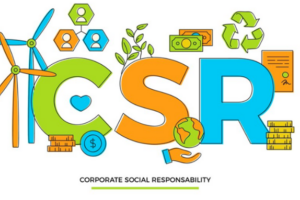How far can we raise the bar for corporate social responsibility?
While the EU remains committed to the UN’s Sustainable Development Goals, for the rest of the world they’re simply unrealistic. Can the EU balance sustainable growth with environmental, social and labour rights through trade deals that are driven by corporate social responsibility?
As early as 2007, the EU cited its commitment to ‘peace, security, the sustainable development of the Earth [and] the protection of human rights’ through the Lisbon Treaty. By agreeing to protect and uphold these values in its ‘relations with the wider world’, the missionary principle continues to inform the Union’s trade policy (Arts 21 TEU, 207 TFEU).
Dialogue instead of sanctions
An early example is the economic partnership agreement with the CARIFORUM States, followed by a 2011 free trade agreement (FTA) with South Korea, which included a Trade and Sustainable Development (TSD) chapter imposing mutual environmental and social obligations. TSD chapters have since become a standard part of agreements, as they promote global fair trade practices that align with the International Labor Organization’s (ILO) conventions and the Paris Agreement.
The challenge posed by TSD chapters lies in enforcing not just their formal wording but also their underlying principles. Within the EU, the Commission Expert Group on Trade and Sustainable Development monitors compliance, and complaints can be lodged by Member States and civil society. However, the EU does not impose sanctions for non-compliance, instead opting for an approach based on dialogue with partner countries.

Corporate social responsibility
A key element of the EU’s SDG operationalisation through FTAs is corporate social responsibility (CSR), ensuring companies meet sustainability regulations. Without CSR, trade agreements could cause job losses, economic strife and environmental harm. CSR’s focus on sustainability protects workers and the planet, promoting fairer and greener trade.
A number of initiatives seek to align corporate culture with the SDGs’ environmental and social goals. The ILO’s parallel Decent Work Agenda promotes a rounded interpretation of sustainable development, focusing on employment creation, social protection and workers’ rights. The OHCHR’s Guiding Principles on Business and Human Rights and the OECD’s Guidelines for Multinational Enterprises on Responsible Business Conduct promote responsible business conduct across borders, covering human rights, labour rights, the environment, corruption and consumer interests. The EU is leading global efforts to advance CSR by incorporating corresponding commitments in its TSD chapters.
Sustainability efforts
Apart from using FTAs, the EU supports the UN’s soft law provisions within its single market, notably through the 2017 Conflict Mineral Regulation. This regulation imposes due diligence on mineral and metal suppliers trading within the EU, preventing profits from armed groups and addressing issues such as child labour, forced resettlement and the destruction of cultural heritage in the underregulated mineral sourcing sector. By operationalising trade policy, the EU advances the UN’s ‘decent work’ goal (#8), ‘reduced inequalities’ goal (#10) and ‘responsible consumption and production’ goal (#12).
Other recent examples include the introduction of the Corporate Sustainability Reporting Directive (CSRD) in January 2023 and the EU Parliament’s approval of the Corporate Sustainability Due Diligence Directive (CSDDD). The CSRD mandates environmental, social and governance (ESG) disclosure for greater transparency, while the CSDDD requires companies to address human rights and environmental impact in their supply chains. These directives mark significant milestones as they strengthen the EU’s sustainability efforts and provide a framework for CSR implementation outside the EU.
The EU-Mercosur Trade Agreement
The EU’s CSR measures are crucial for trade agreements beyond Europe, as seen in the 2019 EU-Mercosur Trade Agreement.
Although the CSR guidelines in Mercosur countries are less rigorous than those of their European counterparts, the agreements include an entire chapter on trade and sustainable development, demonstrating commitment to CSR regulations. The TSD chapter focuses on ratifying and implementing ILO Conventions, and particularly on eradicating child labour and protecting freedom of association (relating to collective bargaining).
Agreement scrutinised
The agreement should signify a step towards fostering sustainable development through international legal frameworks. However, the agreement has been highly scrutinised for its potentially detrimental environmental effects, while Mercosur has been criticised for prioritising the removal of trade barriers in ways that conflict with SDG objectives. Concerns relate to the drive for increased EU imports of forest risk commodities leading to severe deforestation, as well as boosted exports of pesticides and combustion-engine vehicles, which pose great health risks to both regions.
In December 2023, the parties failed to sign the agreement due to political resistance. A new deadline has been set for mid-2024.
A way forward
We need to wait and see how the revised treaty will implement CSR standards. Overall, the EU-Mercosur Trade Agreement represents an opportunity to harmonise CSR practices across regions and raise the bar for corporate behaviour in both EU and Mercosur countries. FTAs that incorporate the EU missionary principle provide an opportunity to bring the SDGs to life, as they bring an extra incentive to implement human rights and labour standards. However, compared to other EU extraterritorial initiatives, they fall short of enforcement mechanisms. TSD chapters have to go beyond mere rhetoric: when dialogue is favoured over sanctions, the process of assessing TSD chapters needs to be enhanced. Generally, although the EU’s CSR initiatives are well meant, they should be taken with a pinch of salt. The inherent expectation of lower labour standards outside of the EU could result in moralising undertones, which are uncalled for in trade negotiations between equal partners.
Photo Getty Images via Unsplash+





0 Comments
Add a comment